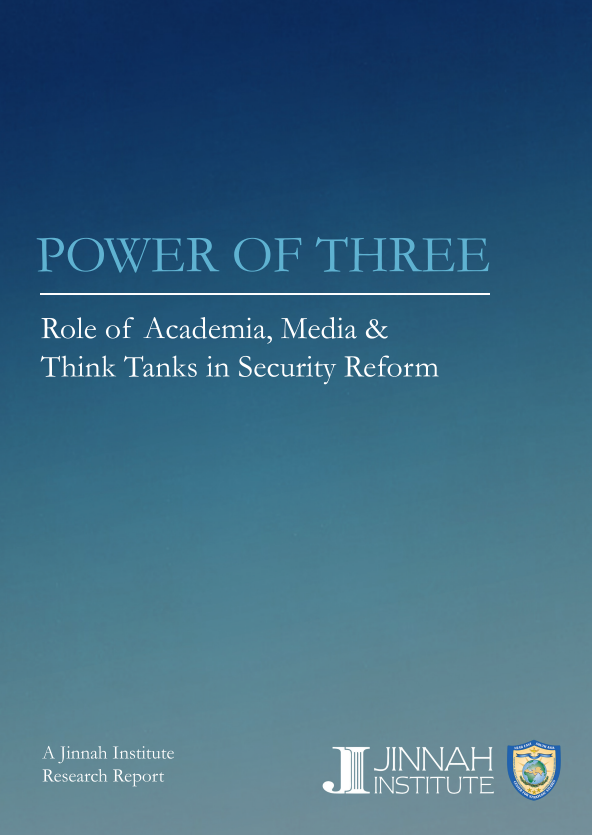Conference and Research reports
Power of Three: Role of Academia, Media & Think Tanks in Security Reform
Date: November 25, 2023
Pakistan’s National Security Policy (2022-2026) provides an improved pathway for implementing safeguards that protect citizens from traditional and emerging threats. It has also broadened the institutional setting within which security reform takes place, by merging governance, human development and climate change, as key domains for securing citizens’ well-being, and in the process, expanded the scope for participation by non-traditional actors in this sphere. While this is a step in the right direct, however, a host of complementary reforms in security practice, stakeholders’ dynamics and outcomes need to come about for a meaningful transformation of the security sector.
Much of what constitutes the National Security Policy has emerged from the last two decades of combat in the War on Terror, and a growing need for alternate approaches to terrorism and extremism, that identify threats, actors, and the processes surrounding them, differently. There has been a push towards non-traditional approaches to security that offer a more wholesome perspective of threats and potential responses, resourced by civil society groups.
The role of experts, media persons, academics and think tanks has been especially prominent during the revamp of the security policy, however, the interaction between state and civil society actors has neither been straightforward nor comfortable. Both sides admit to working at cross purposes to one another, and where their interests align, there is ad-hoc institutional outreach for support or collaboration. There is ample room to create a structured paradigm within which the state and civil society partners can assist public policy, especially security reform.

